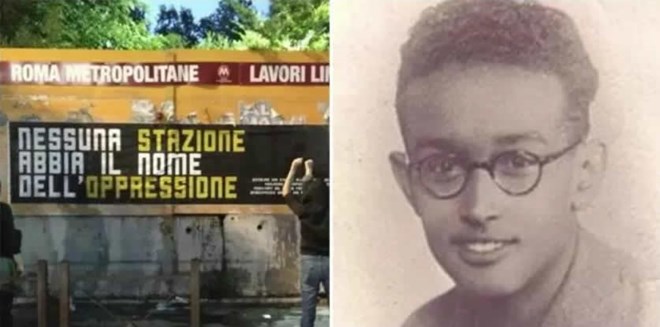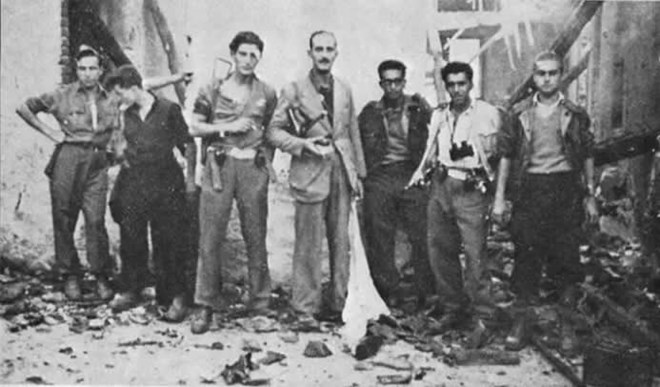
Thursday August 6, 2020

Activists placed a banner over the Metro C works on Via dell'Amba Aradam which stated (in Italian) that no station should be named after "oppression" - A young Giorgio Marincola.
Rome votes to name future Amba Aradam metro stop after Giorgio Marincola.
Rome city council has backed a motion to name a future Metro C station after the so-called partigiano nero or 'black partisan' Giorgio Marincola, instead of the planned name of Amba Aradam - Ipponio.
"Rome is proudly anti-fascist," said mayor Virginia Raggi who declared that Marincola "sacrificed his life for the good of our country, his example keeps alive the memory of those who died for the liberation of Italy."
Naming the station after Marincola is "a precise and important signal, especially in this historical period," said Raggi, adding: "Rome does not forget."
The move comes six weeks after activists placed a banner over the Metro C works on Via dell'Amba Aradam which stated (in Italian) that no station should be named after "oppression", and signed in support of the Black Lives Matter movement.
The activists pledged to "dismantle the symbols of colonialism in the capital", targeting Rome streets that recall "shameful massacres carried out by Italian soldiers in Ethiopia, such as Via dell'Amba Aradam" (named after a battle which took place in Ethiopia in 1936).
The activism in Rome followed the defacing of the Milan monument to Indro Montanelli, the prominent right-wing Italian journalist who bought a 12-year-old Eritrean girl as his wife while serving in the Second Italo-Ethiopian War in 1936.
Who was Giorgio Marincola?
Son of an Italian military officer and a Somali woman, Marincola was born in 1923 in what was then called Italian Somaliland.
Contrary to the customs of the time, his father recognised both children (Giorgio had a younger sister called Isabella) and brought them to Italy where they were raised as Italian citizens.

Giorgio Marincola third from right with other partisans
Marincola chose to contribute actively to the liberation of Italy in the Resistance period, participating in raids against the German military in the provinces of Rome and Viterbo, before parachuting into the northern province of Biella in 1944.
In January 1945, Marincola was arrested by the Germans who tried to coerce him to make disparaging remarks against the resistance movement during a radio broadcast. However Marincola defied them by saying the exact opposite of what was written in his script, and was beaten while still on air.
After the Nazi SS abandoned its transit camp in Bolzano, where Marincola had been incarcerated, he made his way to join a partisan faction in the Fiemme Valley in the northern province of Trento.
It was here that he was shot and killed, along with 25 other partisans and civilians, by retreating German soldiers at a checkpoint on 4 May 1945.
In 1953 Marincola was posthumously awarded Italy’s highest military honour, the Medaglia d’Oro al Valor Militare, in recognition of his heroism and ultimate sacrifice.